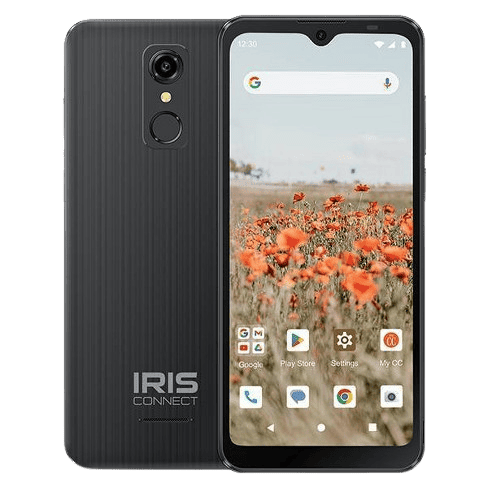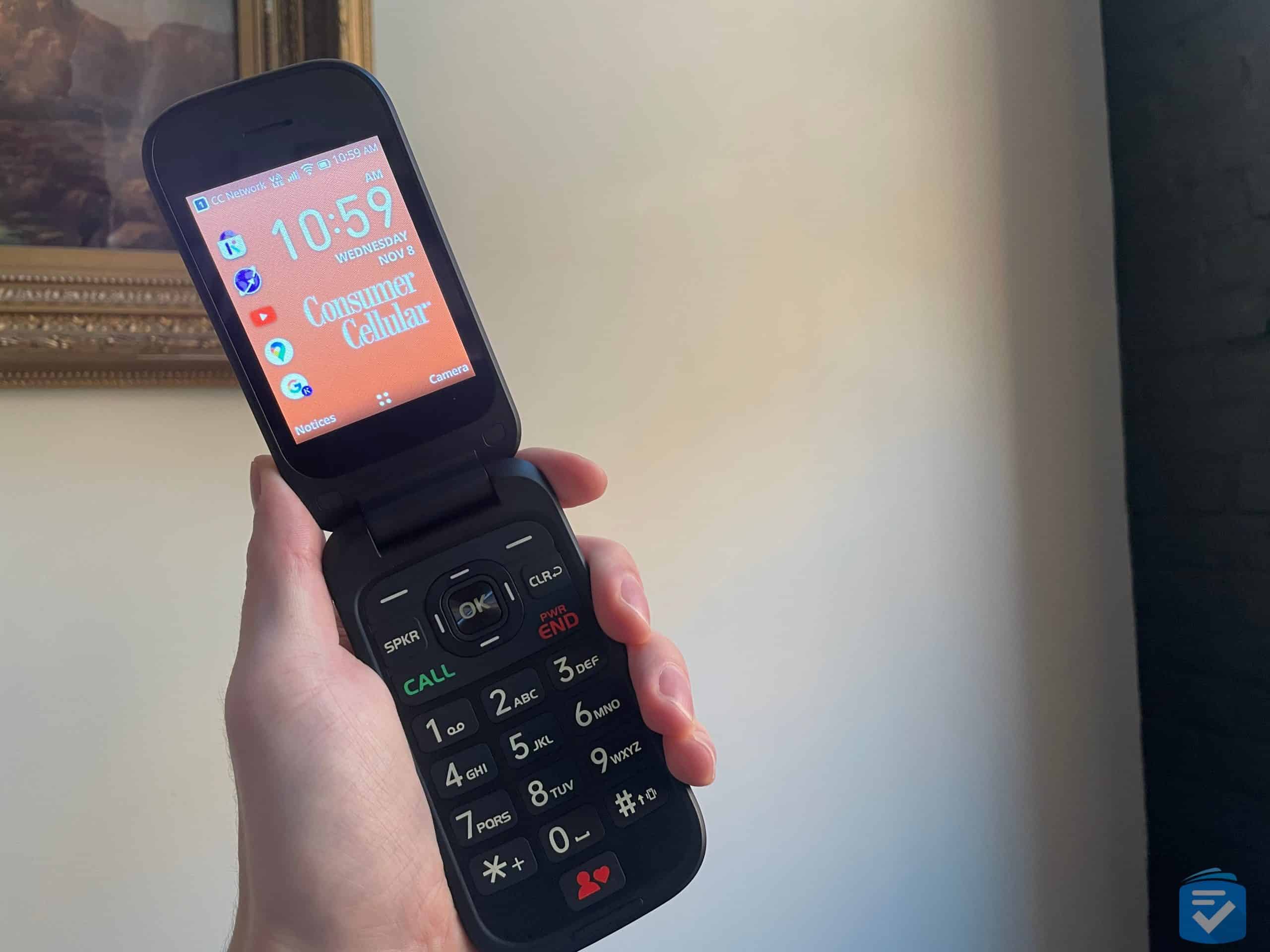Consumer Cellular vs Verizon
Looking for affordable cell phone service without sacrificing quality? Our hands-on analysis compares Consumer Cellular and Verizon to help you make an informed decision. Although Verizon boasts impressive network reliability — ranked No. 1 in RootMetrics’ 2024 Mobile Performance Report1 — Consumer Cellular offers significantly more budget-friendly options, with plans starting at just $20 compared to Verizon’s $35 minimum. AARP members can access even better deals through Consumer Cellular, while Florida seniors qualify for Verizon’s exclusive 55+ plan.
Whether you prioritize nationwide coverage or cost savings, our comprehensive comparison breaks down everything from contract terms to device options so you can choose the best provider.
Consumer Cellular vs. Verizon: Takeaways
- Consumer Cellular is the far more affordable option. This carrier offers plans starting at $20 per month, while Verizon’s plans start at $35.
- For plans with unlimited data, the two providers have comparably priced options, both starting at $50 per month.
- Florida residents 55 and older can purchase deeply discounted plans from Verizon. To learn more, read our review of Verizon 55+ plans.
FYI: To find our full rundown of senior discounts on phone plans, read our guide to this year’s best senior phone plans.



|

|
|
|---|---|---|
| Editor's Ratings | ||
| Starting Cost (One Line) | $20 per month | $35 per month |
| Starting Cost for Unlimited Talk, Text, and Data | $50 per month | $50 per month |
| Discounts for Multiple Lines | Yes, additional lines cost $15 each. | Yes. The discount varies by the specific plan. |
| Annual Contracts | Not required | Not required |
| Bring Your Own Phone Option | Yes | Yes |
| Contact | ||
| Phone Number |
Call for best price:
844-580-0512 |
|
| Website | View Packages Links to Consumer Cellular | See Our Favorite Cell Phone Plans |
Plans and Costs
Consumer Cellular’s plans tend to be more budget-friendly than Verizon’s. For a plan with unlimited talk, text, and 1 GB of data, Consumer Cellular charges just $20 per month — a price Verizon doesn’t come close to matching.
However, as data allowances increase, so do the prices. A Consumer Cellular plan offering 10 GB of data is $35 per month, while their unlimited data plan costs $50 per month. Still, each additional line costs just $15. So even though $50 per month might sound high for unlimited data, two lines would amount to $65, or $32.50 each.
>> Read More: The Best Unlimited Plans for Seniors
In contrast, Verizon’s prepaid plans start at $35 per month with 15 GB of monthly data. However, Verizon’s prepaid plan subscribers can experience deprioritization, unlike Verizon’s postpaid plan subscribers.
All of Verizon’s postpaid plans come with unlimited talk, text, and data. They start at $65 per month for one line, and the main differences between each plan will be data speeds, hotspot data, and extra features like international calling capabilities. That said, unless you’re a heavy data user, these features likely won’t be necessary.
Consumer Cellular’s unlimited data plans are $50 per month for a single line, $65 per month for two lines ($32.50 each), and $80 for three lines ($26.67 each). In almost every scenario, Consumer Cellular’s pricing is more affordable than Verizon’s.
Senior Plans
Both Consumer Cellular and Verizon offer plans for seniors. However, the plans differ slightly in terms of eligibility and features.
Consumer Cellular offers a senior plan that includes two lines of unlimited talk, text, and data for $55 per month ($27.50 per line). To be eligible for this plan, you must purchase two lines and be an AARP member. Additionally, for non-AARP members, Consumer Cellular offers two lines with unlimited talk, text, and data for $60 per month ($30 per line).
Verizon offers one senior plan. It includes unlimited talk, text, and 4 GB of data in the U.S., Mexico, and Canada. This plan costs $62 for one line or $84 for two lines. The primary downside of this plan is it’s currently only available to residents of Florida, while Consumer Cellular’s plan is available nationwide. Additionally, Consumer Cellular’s senior plan includes 5 GB of data.
Contracts
Regarding contract flexibility, Verizon and Consumer Cellular allow customers to use their services without being locked into long-term agreements. Subscribers can end their service whenever they choose and immediately stop their recurring monthly charges. The situation becomes more complex, however, when purchasing a device through these carriers.
Take Verizon’s latest iPhone offering as an example. Customers can either make a single payment of $829.99 or spread the cost across 36 monthly installments of $23.05, which appears as an additional charge on their regular bill. While service still can be terminated at any time, the remaining balance on the phone must be settled in full.
Similarly, Consumer Cellular offers customers the choice of paying the full device cost up-front or dividing it into monthly payments. The main distinction between the two carriers lies in their financing terms: Consumer Cellular structures device payments over 24 months, whereas Verizon extends the payment period to 36 months.
Phones and Devices
One might assume that Consumer Cellular, being a budget brand, would offer comparably budget-minded options for phones themselves. However, Consumer Cellular offers the most modern smartphones available, including the iPhone 16 Pro and the latest Samsung phones. Verizon, as you can imagine, also offers the latest devices from Samsung and Apple. Both providers also offer a selection of simple flip phones that are ideal for users who just want to make calls and send the occasional text message.
>> Read More: The Best iPhones for Seniors
In most cases, devices will cost you more or less the same whether you buy them from Consumer Cellular or Verizon. For example, an iPhone 16 Plus will cost $929 from Consumer Cellular and $929.99 from Verizon. The only exceptions would be current promotions, which both providers routinely run.
That said, Consumer Cellular generally has a much larger selection of simple flip phones, including the Iris Flip and the Iris Easy Flip, two of our favorite flip phones.

Coverage
Verizon is a stand-alone company with their own proprietary network, while Consumer Cellular is not considered an actual carrier. Instead, Consumer Cellular — as a Mobile Virtual Network Operator (MVNO) — piggybacks their cell phone service through T-Mobile’s network. In theory, this could mean that if a Consumer Cellular customer were to find himself in a crowded area with a bunch of T-Mobile users, his service would take a back seat to T-Mobile subscribers. In practice, however, I’ve never noticed much of a difference while using my Consumer Cellular service.
Did You Know: In 2024, one study found that T-Mobile had the fastest 5G download speeds2 among major U.S. carriers, averaging 238.3 Mbps. To learn about this carrier’s plans, read our review of T-Mobile’s Unlimited 55+ plans.
Our Favorite
Consumer Cellular offers plans to meet most people’s needs at affordable prices. Their plans are a great choice for AARP members who want a top-of-the-line phone with unlimited talk, text, and data options. To learn more about my experience with Consumer Cellular, take a look at my hands-on Consumer Cellular review.
Verizon is a good choice if you don’t mind paying a premium for their services. They are more expensive but offer faster data speeds. For more information on cell phones, check out my rundown of this year’s best phones for seniors.
Our Methodology
To provide the most accurate comparison between Consumer Cellular and Verizon, we conducted extensive hands-on testing of both services over a three-month period. Our evaluation included real-world usage across multiple locations and devices, analyzing signal strength, call quality, data speeds, and customer service responsiveness. According to J.D. Power’s 2025 Wireless Customer Satisfaction Study,3 network reliability and cost remain the top priorities for consumers when selecting a wireless provider.
We evaluated each provider based on four key criteria:
- Affordability and Value: We compared plan pricing structures, including promotional offers, multiline discounts, and AARP member benefits, calculating the actual cost of ownership.
- Network Performance: During our testing of each network, we measured signal strength, call clarity, data speeds, and connectivity in urban, suburban, and rural environments.
- Usability and Accessibility: We assessed the ease of account management, billing clarity, customer service quality, and accessibility features specifically beneficial to seniors.
- Device Selection and Compatibility: We evaluated the range of available devices, focusing on those with senior-friendly features and compatibility with existing phones.
Frequently Asked Questions
-
Which is cheaper, Consumer Cellular or Verizon?
Consumer Cellular is generally more affordable than Verizon, with plans starting at $20 per month compared to Verizon’s $35 entry-level plan. For unlimited data, both providers offer comparable options starting at $50 per month, but Consumer Cellular provides better value for multiple lines, charging just $15 for each additional line.
-
Can I keep my phone if I switch to Consumer Cellular or Verizon?
Yes, both Consumer Cellular and Verizon offer “bring your own device” options. Before switching, check that your phone is compatible with the network (Consumer Cellular uses T-Mobile’s network, while Verizon has their own proprietary network.). Most unlocked phones manufactured in the last few years should work with either carrier.
-
Do Consumer Cellular or Verizon offer special discounts for seniors?
Yes, both providers have senior-specific offerings. Consumer Cellular provides AARP members with a 5 percent discount on monthly service fees and offers two lines with unlimited talk, text, and data for $55 per month. Verizon’s 55+ plan offers unlimited talk, text, and 4 GB of data for $62 (single line) or $84 (two lines), but it’s currently only available to Florida residents.
-
Which provider has better coverage, Consumer Cellular or Verizon?
Verizon is widely recognized for their extensive coverage and network reliability, ranking No. 1 in RootMetrics’ 2024 Mobile Performance Report. Consumer Cellular utilizes T-Mobile’s network, which offers strong coverage in urban and suburban areas but may have some gaps in rural regions.
-
Do I need to sign a contract with Consumer Cellular or Verizon?
Neither Consumer Cellular nor Verizon requires annual service contracts. Both allow you to cancel service at any time without early termination fees. However, if you finance a phone through either carrier, you’ll need to pay off the remaining balance on your device if you decide to cancel service before it’s fully paid off (which is 24 months for Consumer Cellular and 36 months for Verizon).


